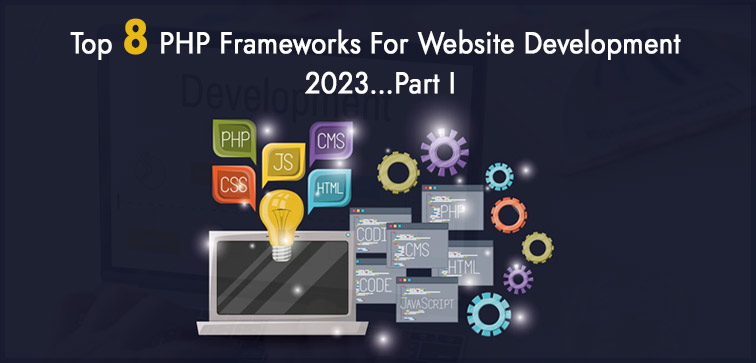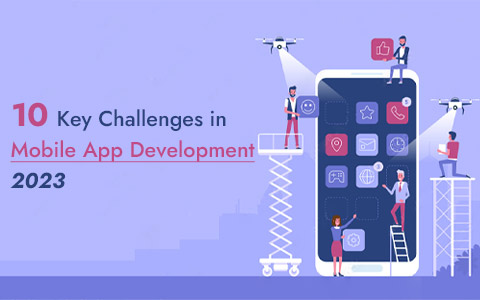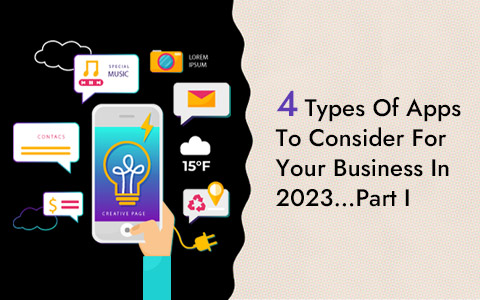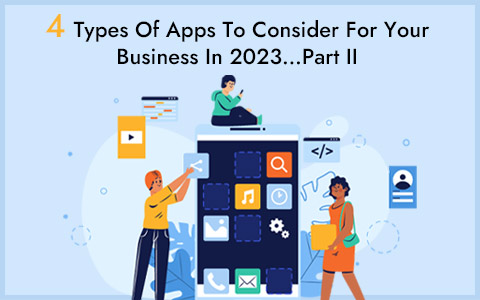Top 8 PHP Frameworks For Website Development 2023…Part I
 December 21, 2022
December 21, 2022 Web Development Services Website Development Services
Web Development Services Website Development Services
“Websites should look good from the inside and out.” – Paul Cookson

In this two part blog series we will go through a list of solid PHP frameworks that you would want to use for your business website development. These are some of the most coveted and used PHP frameworks by professional web developers across the globe.
Midas is your technology expert for developing intuitive and powerful websites and applications. You can give us a call for the latest Web Development Services from India and we’ll curate a customized solution for your site’s design & development requirements.
What Is A PHP Framework?
A PHP framework in simple words is a digital platform to build and create PHP web applications. These frameworks help developers to work on the original codes without the need to start from scratch as you get code libraries for commonly used functions.
Developers get a basic foundation for creating/building web applications on PHP frameworks. You save time and effort on your development process with these organized frameworks.
Why Choose A PHP Framework?
PHP frameworks for development are more coveted than coding from scratch and some of the reasons behind that include:
1. Save Time On Development:
With built-in libraries and tools, you get the advantage to save a lot of time and develop your application in lesser time compared to starting everything from scratch.
2. Superior Performance:
PHP frameworks offer better performance because they go through exhaustive testing for quality performance. This benefits businesses to get high-performing websites that meet the standard.
3. Less Code:
With PHP frameworks you get built-in functions that reduce the need to write original code, thus you save a lot of time and effort there.
4. Maintaining Standards:
With PHP frameworks you get an organized platform to develop and build your applications. These frameworks follow best practices to ensure developers are able to manage and organize their work. For instance, organizing code and following good naming conventions, etc.
5. Safe And Secure:
Since PHP frameworks are secure and come with built-in defense against cyber threats; it is easy to work on these platforms. You will not come across problems such as SQL injection and cross-site scripting.
8 Popular PHP Frameworks For Creating Websites:
1. Laravel:
This open source, user-friendly, and most popular PHP framework was launched in 2011. It is one of the most scalable as well as preferred frameworks for developing B2B, enterprise-level, complex, and multifunctional web applications.
Laravel Key Features:
1. Compared to other PHP frameworks, with Laravel you get superior peerless performance and thorough documentation.
2. With this framework you get quick task execution, and caching facility to provide remarkably performing backends along with advanced memory management.
3. You reduce time to market your application as it has simple and automated testing deftness.
4. It is quite simple and hassle-free to implement email integration on this framework.
Drawbacks of Laravel:
If your web app is content-rich meaning it contains a lot of blog updates, an online store, or a news website then the Laravel framework of PHP might not be the ideal choice for app development.
You will have to create a separate admin panel to manage and modify content on this platform. In case multiple stakeholders will require access to your site setting/backend then it is better to use a CMS in place of Laravel.
2. Symfony:
Released in 2005, this feature-packed, scalable framework is another dependable PHP framework that you can use to develop & construct your web apps.
With modular component systems as one of the salient traits, the framework is impeccable at providing flexibility and developer productivity. Thus, it is quite efficient to build an adaptable and feature-rich web app on this framework.
Symfony Key Features:
1. Perfect for developing enterprise level applications as it is easy to install and configure on different platforms.
2. Frequent upgrades and community support contribute to the strength of this framework.
3. Features like fast code changes, automated data migration, and well-structured documentation make this framework among the coveted platforms for website development.
4. Presence of DI (dependency injection) to create co-dependence between classes to prevent duplicate coding.
5. Web apps are easy to maintain as components are reused.
6. Unit testing and automated functional testing can be done using PHPUnit to rectify different developmental loopholes of web apps.
Drawbacks of Symfony:
While Laravel (discussed above) is easy to work on for beginner and intermediate level developers; with Symfony, you need advanced developing expertise as it is technically more challenging to work on this framework.
Due to its feature-rich trait, it is a bit slower than other frameworks. Thus, it is not recommended to create real-time apps with heavy loads.
For instance, you wouldn’t want to develop social media apps (where you need real-time engagement and communication) using Symfony.
Conclusion:
We are not done here! The next part of the blog series will cover the rest of the frameworks that you can consider for your web app development. For the latest web development services, design assistance, and optimization solutions, You Can Call Midas Right Away! We have almost two decades of expertise in developing robust websites and applications for our global clientele.
popular post
-
6 Website Security Tips You Need In 2023

-
Top 5 Reasons That Will Motivate You To Start Your Ecommerce Website

-
Best 4 Digital Marketing Strategies for Assured Online Success

Categories
- Internet Marketing (13)
- Software Development (8)
- Mobile Apps Development (44)
- Web Designing (32)
- Web Development (60)
 business@midaswebtech.com
business@midaswebtech.com




